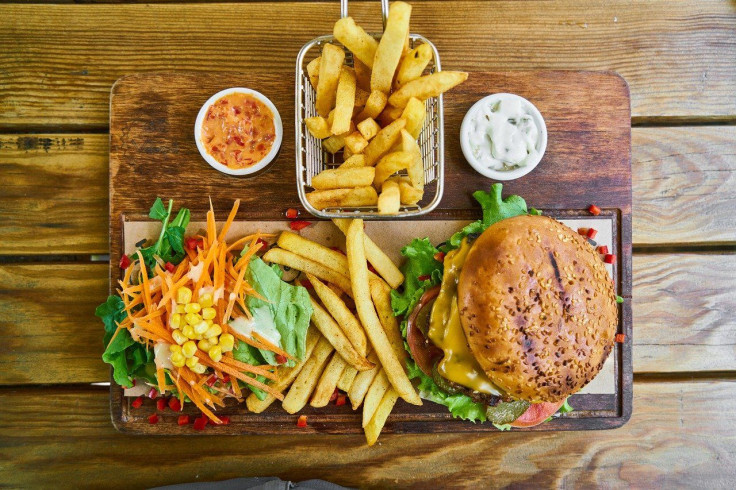The Science Of Why People Choose Unhealthy Food
KEY POINTS
- Researchers conducted an experiment to see why people choose unhealthy food
- They found people take less than half a second to decide if the food is delicious
- Meanwhile, the brain takes longer to process information on food's healthfulness
- Taking more time to decide may help people make healthier, better choices
Why do people choose unhealthy food over healthier ones? A pair of researchers has found that it may not always be our fault.
When faced with decisions on what to eat, people sometimes opt for the unhealthy option. Although one may think that it's because of a lack of willpower to make healthier choices for our health, the authors of a new study, published in Nature Human Behavior, found that it may also boil down to how fast our brains process information.
For the study, 79 young adult participants were asked to fast for four hours prior to their participation in the experiment, Duke University said in a news release. They were then tasked to rate food items based on their desirability, healthfulness and tastiness.
Afterward, they were made to choose between two different food items. Some of the choices were healthy while the others were not, the London School of Economics and Political Science (LSE) said in a news release. The participants had to make a choice 300 times. The researchers timed the participants as they made their choices and offered them one of their selected food items at the end of the experiment.
Researchers found that on average, people take less than half a second to decide if the food is delicious but twice as long to determine how healthy it is. In other words, people tend to take longer to process information about a food item's healthfulness than its tastiness.
"Our findings suggest that it is often not our fault that we give into unhealthy foods - our brain is simply slower at processing how healthy a food is compared to how good it tastes. We may well know how healthy or unhealthy a food is, but our brain thinks first about what the food tastes like," study lead, Nicolette Sullivan of LSE, said in the university news release.
My brain made me do it! A new paper by @LSEManagement's @drnikkisullivan reveals why making healthy food choices is harder than you think! 🍰🍩🍨https://t.co/gV1HeYhbFZ pic.twitter.com/DofQfUjaJ5
— LSE (@LSEnews) July 6, 2021
That small amount of time can be enough to alter people's choices even if it does not sound like much, Duke University said.
"For many individuals, health information enters the decision process too late (relative to taste information) to drive choices toward the healthier option," study co-author, Scott Huettel of Duke University, added as per the university news release.
According to Sullivan, their results also showed that people who take more time in deciding what to eat tend to choose healthier options. Moreover, even people who "generally" opt for unhealthier choices can make healthier ones if they take more time.
Half of the participants were also given a "blurb" about the importance of healthy eating, and they ended up being less likely to make unhealthy choices. This, according to researchers, goes to show how important it is to take more time when deciding what to eat in order to make healthier choices when it comes to food.
"If we are given more time to think about what food we are going to order in a restaurant, and if we are provided with a clearer description of how healthy a restaurant meal is before we choose it, our brains will more easily process information about how healthy food is," Sullivan said as per LSE.
"There may be ways to set up environments so people have an easier time making healthy choices," Huettel said. "You want to make it easy for people to think about the healthfulness of foods, which would help nudge people toward better decisions."

© Copyright IBTimes 2024. All rights reserved.






















